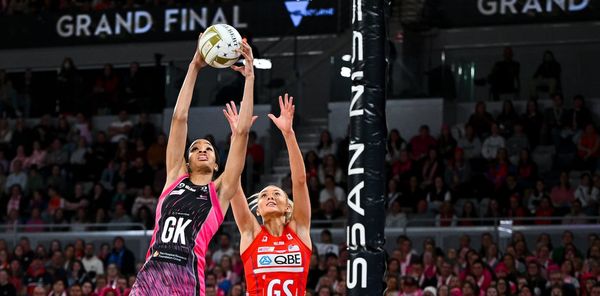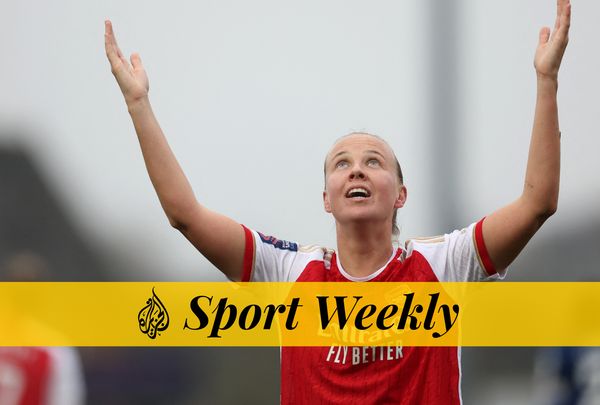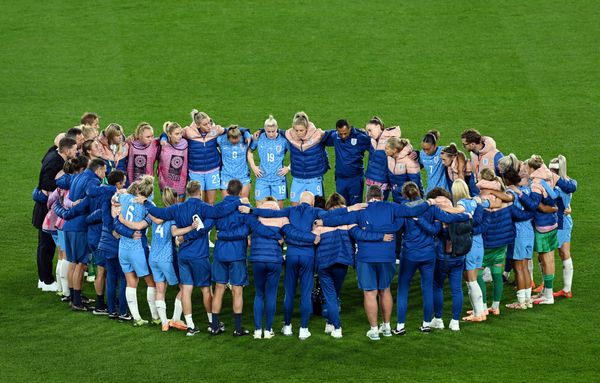
It was a historic year for women’s sport in Australia. We hosted a FIFA World Cup for the first time, with bumper crowds at almost every fixture and the entire nation rallying around the Matildas’ fairytale run to the semifinals, cementing their position as the new sporting face of the country. Despite this, the final in Sydney brought with it a microcosm of the various gendered challenges women in sport still face. The cricketers won the T20 World Cup earlier in the year, and were at the centre of a landmark pay deal. The netballers found themselves among the News Corp opinion columns for all the wrong reasons, with an ongoing pay dispute marring the end of the year.
Matildas become the pride of the nation
Football in Australia was, not that long ago, denigrated as “wogball” — the reserve of sidelined immigrant communities, never really reflected in our national identity. The only time it got national attention was when the News Corp tabloids looked to paint the sport’s fans as violent hooligans, a relic of the xenophobia of years gone past.
Australian football fans, however, held faith in the power of a World Cup — and when it came around, the nation was not ready for the captivating power of the Matildas. Led by a properly world-class figure in Sam Kerr, the rest of the Matildas became household names over the course of a month that changed the profile of women’s sport in this country permanently. The semifinal loss to England was the most watched Australian television program on record, and Australians could now confidently name Mackenzie Arnold, Cortnee Vine, Caitlin Foord, Mary Fowler and Ellie Carpenter alongside Kerr as heroes in the same vein as any male athlete.
The World Cup was not without controversy — the final, won by Spain over England in Sydney, saw Spanish football chief Luis Rubiales spark outrage with his kiss on midfielder Jenny Hermoso, exposing a laundry list of gendered problems within Spanish football and sparking a worldwide conversation that showed the sport still has a long way to go.
Johnny Warren, one of the game’s leading voices in Australia for the best part of 50 years, famously said he wanted to be able to say “I told you so” to the game’s critics — that Australia would be a “football country”. As your correspondent looked out at the 80,000-odd fans at Stadium Australia for the Matildas’ opening game of the World Cup, there was a banner at one end that simply read “I told you so”.
Indeed.
Netball’s year of controversy
Netball had a turbulent year in the spotlight, with the collapse of a major Super Netball franchise and an ongoing pay dispute that left some players sleeping in their cars.
Late in 2022, Gina Rinehart’s Hancock Prospecting pulled a $15 million sponsorship deal after concerns were raised by players over remarks made by Lang Hancock (Rinehart’s father and founder of the company) in a 1984 interview arguing for the forced sterilisation of unemployed Aboriginal people. The financial gap was later made up by sponsorship from the Victorian government.
Netball Australia then found itself in a pay dispute with the players’ union, with the governing body withholding selections for the World Cup in July (won, under the cloud of the dispute, by Australia). Without pay, some players were left sleeping in their cars or were forced to move back in with their families, according to union boss Kathryn Harby-Williams.
This year also saw the collapse of Super Netball franchise Collingwood, replaced with the SEN-owned Melbourne Mavericks.
Sports journalist Sarah Burt said it was “hard to separate [the Hancock withdrawal] from what’s going on now”.
“You’d have to think the reason [Netball Australia] were relying on sponsors like Hancock is because there’s monetary issues … it’s in such a dire monetary situation that they’re sort of landlocked between making these bad decisions,” Burt told Crikey.
Burt said that the pay dispute and associated bad publicity was ultimately “pretty damaging to the sport.
“Now when people think about Netball Australia, or think about netball in Australia, I bet you more people know about the sponsorship deal or the money issues or CBA disagreements than they know about the players themselves, or how we are the world champions.”
Cricket takes wages to new heights
Cricketers enjoyed a stratospheric pay bump, with many Australians joining the inaugural season of the Women’s Premier League in India shortly after our national team took home the 2023 T20 World Cup in South Africa.
Backed by massive new-age Indian franchise money from the likes of multinational cement conglomerates and Gautam Adani’s mining riches, the WPL has seen players earn astronomical amounts. Muruwari woman and Australian all-rounder Ash Gardner topped the rich list, bought by the Gujarat Giants for $558,000 in return for about six weeks’ worth of work. It made Gardner one of Australia’s highest-paid athletes, male or female.
Freelance cricket journalist Melinda Farrell told Crikey it was the “biggest thing not just for cricket but for women’s sport”.
“All of a sudden, female cricketers like Ash Gardner are earning seriously big money that hasn’t been seen in women’s team sport in Australia before. It’s taken it to another level for the best players who can get themselves a Women’s Premier League contract and the masses of eyeballs — the exposure that that gets, not just in India, but around the world, is absolutely enormous for cricket”.
What has this remarkable year of women’s sport meant to you? Readers, we want to hear from you — especially while our comments are closed due to our website upgrade. Send us your thoughts on this article to letters@crikey.com.au. Please include your full name to be considered for publication. We reserve the right to edit for length and clarity.










